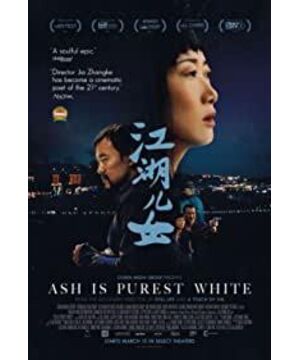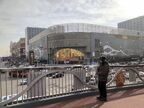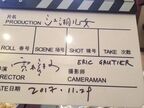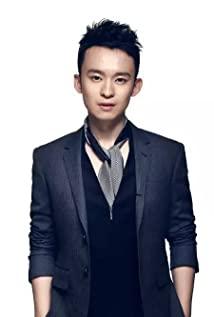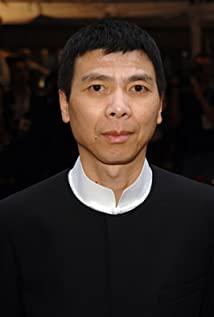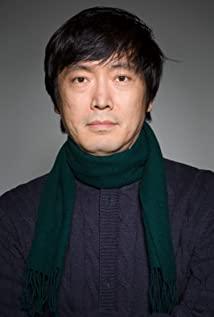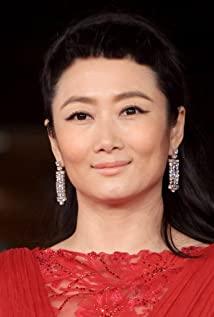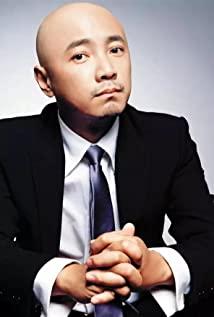1. Jia Zhangke's World Dictionary
"Children of Jianghu" is Jia Zhangke's review of all his works. With repeated expressions, all characters, plots, time and space, visual symbols, and themes form a film dictionary of Jia Zhangke.
The ancient cities of Datong/Linfen, with the depletion of resources, the arrival of a new era, and the migration of a large number of people, are the hometowns that characters always want to leave (but cannot leave), Sanxia/Fengjie seems to be synonymous with the former: a simultaneous A city in transition in the paradox of building a new civilization (Three Gorges Dam) and disintegrating (demolition and relocation).
Hong Kong/Guangdong, Hong Kong and Taiwan pop songs, Hong Kong shootouts, Crown cars, portable tape recorders, as pop culture and fashion, are the objects of spiritual and material aspirations of characters. If there are hipsters, they must be from the South. In "Platform," it's the train that leads to their dream world. At the same time, the heroes of Hong Kong films become the mirror images of the little people's desires. They form their own rivers and lakes/groups with friendship as the core.
Emotional pop songs from Hong Kong and Taiwan have become a container for the emotional world of introverted people and a way to vent. On the other hand, singers are always doing their best to make a living. After the disbandment of the "Platform" Chinese art troupe, the actresses danced on the truck, next to the road, and no one watched. In "Children of the Rivers and Lakes", the entertainers who sing pop songs are shown to the audience side by side with the ligers in the cages, which means that they are both spectacle-style entertainment products. Even the singers who sing love songs are imprisoned like animals, lions Pacing repeatedly indicates that it has a stereotyped behavior. Whether it is the audience or the performer's situation, it is to contrast this extremely lonely world and the people who are unable to resolve the loss.
The rich space of the mahjong hall and the video of the bus passengers at the beginning (Jia Zhangke seems to have deliberately adjusted the opening paragraph to the same frame as the video), reminiscent of the documentary "Public Space"). The young gangster suddenly committed violence, and Zhao Tao was sentenced to prison after committing violence in a just act of self-defense. After his release from prison, he embarked on a journey to the south, which also reminds people of "Destined".
In "The Three Gorges Good Man", Zhao Tao bids farewell to his lover in Fengjie. The departure of her husband/boyfriend, the death of her father, a lonely and independent woman living a single life, as a recurring theme, appeared in "The Good Man in Three Gorges", "Old Man in the Mountains and Rivers" and "Children of the Rivers and Lakes".
In "Children of Jianghu", Zhao Tao saw an alien flying saucer beside the Northwest Railway Station on the way to Xinjiang. Here, flying saucers and rockets both mean miracles. At the moment when the meaning of life is extremely lost or extremely entangled, in the face of this surreal existence that transcends rationality, it does not seem to be important, so Zhao Tao chose to end the journey to Xinjiang. ——This life's fork in the road, back to Datong, back to the rivers and lakes.
2. Who is missing from the dictionary? - absent person
The theme of "Children of Jianghu" is not like the modernist theme of "The Road - Finding", but more like the loss of meaning (Zhao Tao and Liao Fan are far away from Jianghu or abandoned by Jianghu) to the retrieval of meaning (Zhao Taohui To Jianghu, Liao Fan said that this is not my Jianghu process. In this process, the characters must have formed their own culture and concepts of personality, affirmed their hometown and family friendship, and adhered to their own beliefs. For the theme of this film, for Jianghu , I have no more understanding. For Jia Zhangke's dictionary, I want to talk about the absent person.
First, let's talk about Zhao Tao. Zhao Tao's symbolic meaning in Jia Zhangke's films is always self-confidence, full of aura, and strong purpose. She has never been a confused person. She has always been a person with meaning, but this meaning may sometimes be temporary. disappear. This is the reason why I don't like her. I can't say that I don't like her as an actor, but more because I don't like this symbol.
And the protagonist of Jia Zhangke that I (or more people) love is Xiao Wu. He's more of an existentialist (the protagonist of a modernist film) living in a ridiculous world, skeptical of the world, lost, deprived of value and meaning. In terms of visual presentation, Xiao Wu is thin and small, making him inconspicuous in the crowd. The camera makes it impossible for us to see the close-up of Xiao Wu. In the unstable composition, he is a person who can never occupy the space of the picture - it is not important in terms of space. It is also meaningless. At the same time, we are more willing to believe that Xiao Wu is the self-portrait of Jia Zhangke's film, the portrayal and projection of his personal life and inner emotions.
And Zhao Tao's symbol has always been the opposite of Xiao Wu. When they appeared in the same movie, "Platform", the two were always opposite symbols: Zhao Tao was a police officer (the most honest profession), and Wang Hongwei was unemployed ( Not even the masses); Zhao Tao is a mother who loves the family, Wang Hongwei is a father who takes care of himself; Zhao Tao takes on the dual responsibility of society and family, and Wang Hongwei is a marginal figure in society and family. At the same time, I noticed that in "Platform", "Old People in Mountains and Rivers" and "Children of Rivers and Lakes", Zhao Tao has always been the "daughter of the father". As a person who has no narrative role, the father has always existed, and the death of the father is often important. Yes, the meaning of existence is to show the importance of family. Zhao Tao has always agreed with this concept of family and longed for family, longing to build a new family with his life partner. As for the roles played by Wang Hongwei, from "Xiao Wu" to "Platform", we find that Xiao Wu and his family have been in a state of separation or even a break. In the end, he never went home again; Cui Mingliang on the platform had always had a conflict of values with his mother, and his father was always absent. At the end of the film, Cui Mingliang went to another woman to ask if my dad was here with you? In fact, it has been shown that his family is completely shattered, and therefore he does not desire family. We also understand that "family" and family affection have always been valued by mainstream culture and ideology. The presence of the father has become a symbol of order in the family. At the same time, everyone's family role also means taking responsibility. The concept of value and the concept of order have always been opposites.
At the end of "Platform", when Zhao Tao starts her life journey with satisfaction (with her child in her arms), Wang Hongwei's life is over (family is not important to him), he has been sleeping, and finally the kettle starts to sound. He heard the whistle of a train—for Wang Hongwei, it was the distance that the train led, but he didn't want to wake up. In short, I would like to say that Zhao Tao and Wang Hongwei have always been the opposite of mainstream and non-mainstream society.
So where is the most important and touching symbol in Jia Zhangke's film world? What about the most important keywords in this dictionary? Is it Liao Fan from this one? I don't think so either. Although they are very similar in many aspects, he also rejects family and marriage. He is also the most moving character in this film, making people feel that he has a rich inner reality. Liao Fan is like a Hong Kong film loved by all corners of the world - the little brother in "The True Color of Heroes" who "must get back what I lost".
Whether it's "Old Man of Mountains and Rivers", "Youth", or "Farewell My Concubine", they all have great ambitions to describe the changes of the entire society, but the method seems too straightforward, whether it is to write about people or write about the times, The focus is on the latter. They seem to be just "historical scenes": this man was fine before, now he is so miserable, and I'll tell you why he is so miserable. The point is to explain why, that is, the invisible wheel of "history", and history has become the protagonist of the film and the object of our emotions. But I prefer films like "Xiao Wu", I want to understand the individual, I want to get closer to his life and his inner world.
In addition to a large number of references to his own works, "Children of Jianghu" also expresses several intertextual expressions: at the beginning, Binbin presides over justice in a mahjong hall, the dark interior tone is like the beginning of the godfather, and he teaches his girlfriend to shoot like the audience, like a train robbery. . The entire film is densely represented by symbolic images, without a single word or source; under the complex storyline, the characters have spanned more than half of China in a few decades. "Children of Jianghu" is undoubtedly a highly collaged work. In analogy to postmodernism, it can be regarded as a work of Post-Jia Zhangke, including almost every work of him. If I insist on mentioning "Eight and a Half", "Children of Jianghu" "It seems to be an "Eight and a Half" without Guido, and the person I want to see most is absent.
I sincerely hope that the section chief will take this film as a complete end to another journey.
View more about Ash Is Purest White reviews


